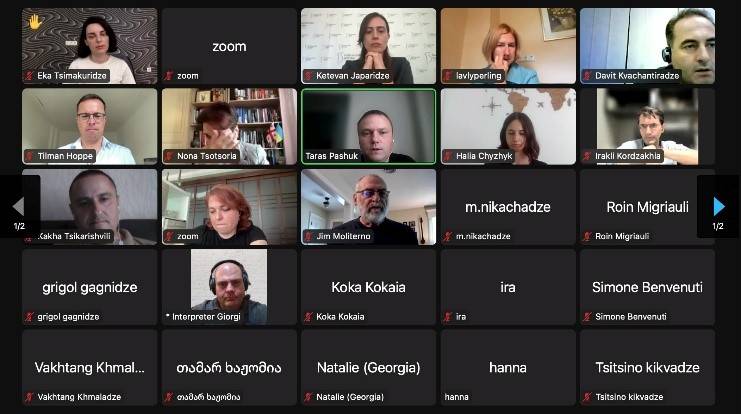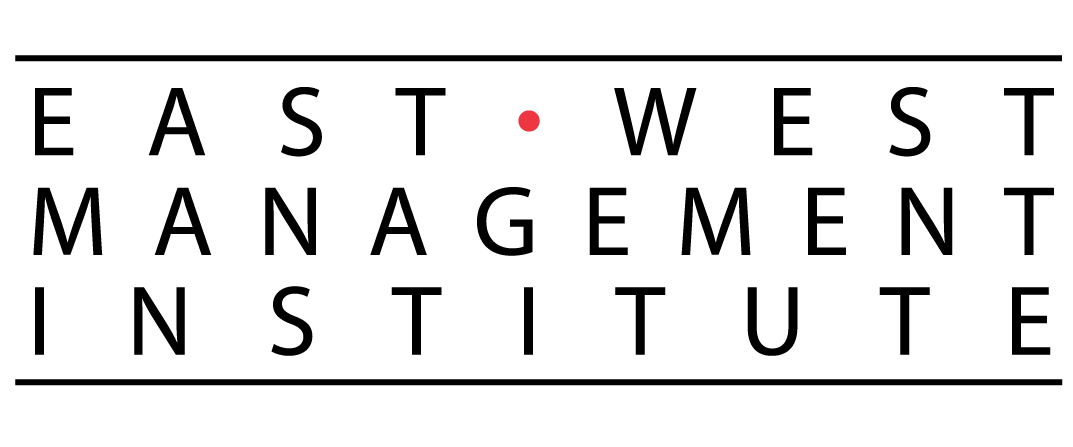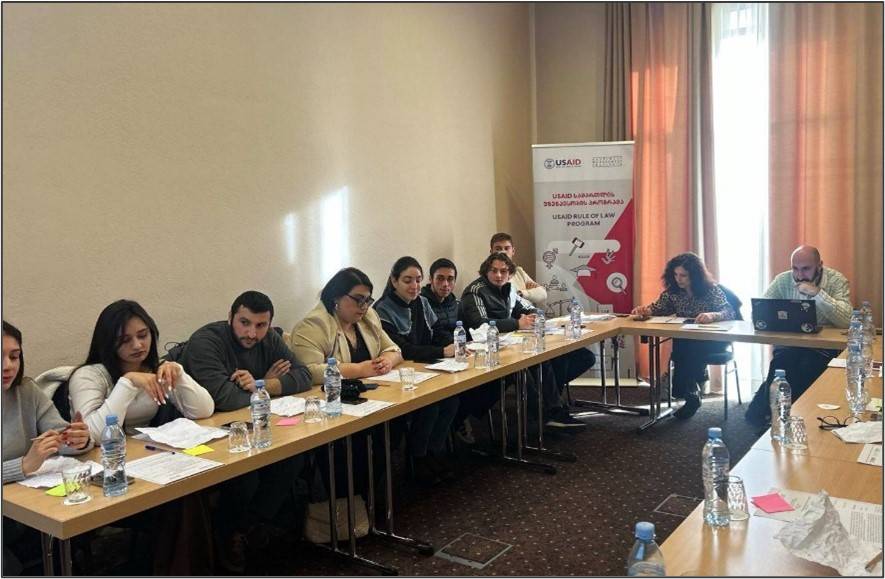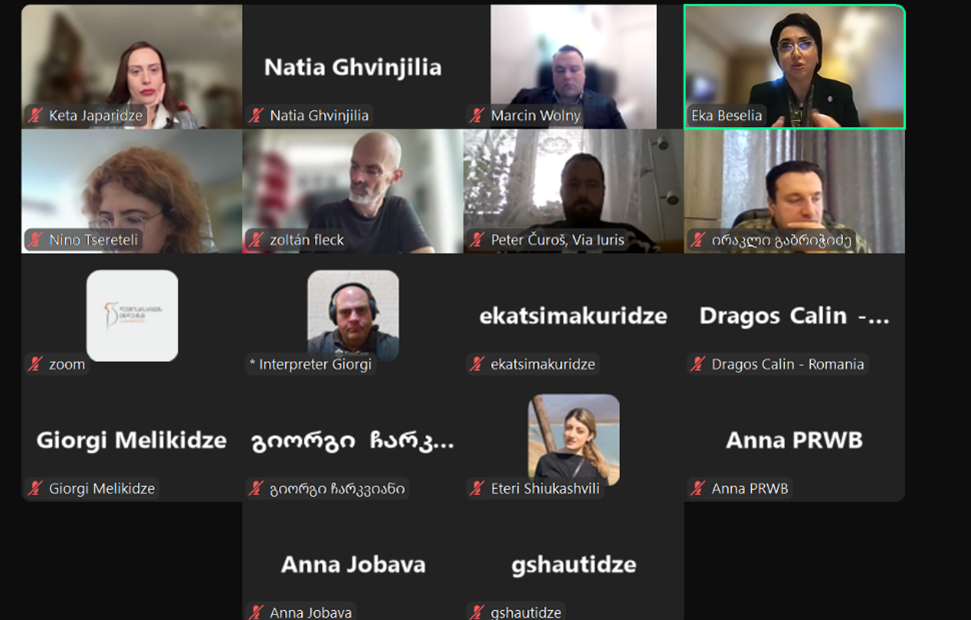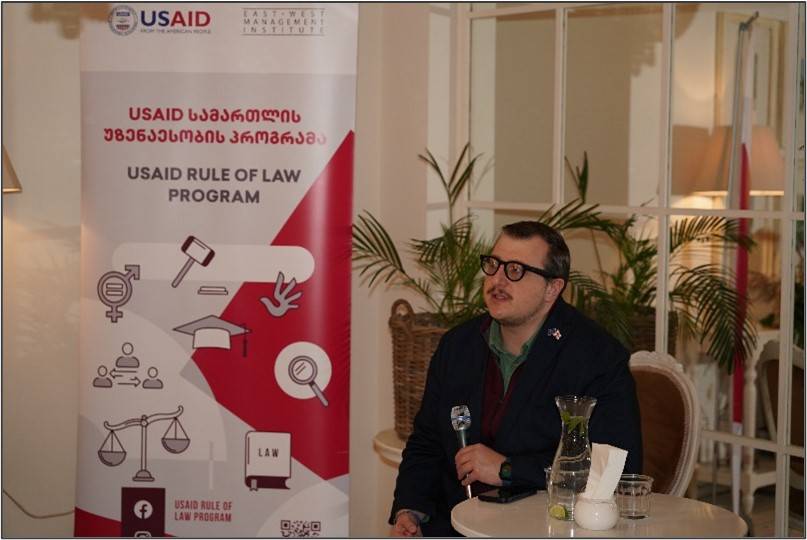The Role of Independent Judicial Governance in Transitional Democracies
Group of Independent Lawyers and Democracy Index - Georgia, with USAID Rule of Law Program support, organized an international online discussion on the role of independent judicial governance in Eastern European countries.
In 2021, aiming at securing judicial independence and defending judges from political interference experts from Armenia, Bulgaria, Georgia, Moldova, Romania, and Ukraine prepared a set of recommendations on judicial governance.
The main recommendation suggests judges should govern themselves through an independent council with a substantial amount (in some documents - the majority) of its members elected by judges. So far, it is believed that a council composed of judges is the best guarantee of judicial independence. These recommendations proved its efficiency in long-standing democracies, where justice systems matured over time, and served as a safeguard from any undue political interference with courts. However, the implementation of this standard in Eastern Partnership countries which only started the democratic transformation has not led to the expected results. On the contrary, corrupt and politically dependent judges were strengthened and contributed to internal corporatism.
Over 3O participants, including lawyers, judges, judiciary experts, and NGO representatives from Ukraine, Georgia, Armenia, Poland, USA, Italy, and Estonia, attended the online meeting. The discussion provided a comprehensive overview of recent judicial reform developments in the region and how successful solutions can cross borders.
Halia Chyzhyk, an expert from Ukraine, moderated the event and delivered a presentation on the recommendations for judicial governance prepared in 2021. In his intervention, Dr. Tilman Hoppe, a former judge from Germany and Co-Chair of the Selection Commission for the Chairperson of Ukraine’s National Agency on Corruption Prevention, emphasized an important shift in the position of European institutions regarding judicial reforms. In particular, the European Court of Human Rights and the Venice Commission have recognized that the same solutions work differently in countries with different political cultures; i.e., solutions that work successfully in Germany and Sweden often will not work for Georgia, Moldova, and Ukraine. Importantly, Dr. Hoppe noted that the Venice Commission could play an important role in suggesting successful solutions and models of judicial governance for countries that struggle to build independent and accountable judiciaries.
Ms. Lavly Perling, a former Prosecutor General from Estonia and a member of both Ukraine’s Ethics Council and Moldova’s Judicial Vetting Commission, shared her experience working as a member of Ukraine’s Ethics Council – a special independent body established for the integrity assessment of the candidates to the country’s highest judicial governance body, the High Council of Justice. She stressed the importance of political will to conduct genuine judicial reform and the need to establish effective cooperation with all the stakeholders responsible for the implementation of the reforms. Ms. Perling highlighted the advantages of involving outside experts in the judicial governance members’ selection process.
Nona Tsotsoria, a member of Moldova’s Independent Evaluation Commission for the members of the self-administration bodies of judges and prosecutors and a former Judge of the European Court of Human Rights, described Moldova’s experience in the creation of the Independent Evaluation Commission. Ms. Tsotsotia noted that the participation of international experts was crucial for the successful outcomes of the reform. Furthermore, based on her experience she believes involving independent professionals in the selection process is more important than focusing on filling quotas and ensuring judicial representation on the selection panels.
Taras Pashuk, Legal Advisor at the Secretariat of the Venice Commission, shared his feedback on the 2021 Recommendations. In particular, Mr. Pashuk noted that integrity and accountability are essential parts of judicial independence. He noted that the Venice Commission is now working on a new opinion that will address judicial independence and expressed the readiness of the Commission to cooperate with the International Network of Judicial Reformers on the matter.
The discussion participants recognized the importance of finding and promoting effective solutions for ensuring judicial independence and accountability. They welcomed the efforts of the recommendation’s authors and expressed their support for further development of the document with the aim of elaborating on successful experiences of different reforms and models.
This discussion is part of an ongoing online talk series that the Group of Independent Lawyers and Democracy Index – Georgia organizes through the International Network of Judicial Reformers. The network currently brings together 59 members from 23 countries across Europe, Asia, Latin America, and the USA.
